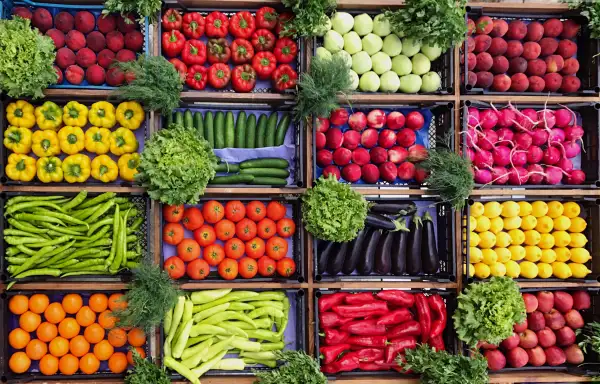You'll Eat More Fruits and Vegetables if Somebody Is Paying You, According to Science

If your New Year's resolution is to eat healthier, you might want to hit up an ATM before the ball drops.
New research from the University of Colorado Boulder has found that stressed-out people are more likely to eat fruits and vegetables if offered a cash incentive to do so.
It's no secret that we tend to gravitate toward unhealthy foods when feeling overwhelmed. So with the help of grad students Casey Gardiner and Sarah Hagerty, psychology and neuroscience professor Angela Bryan set out to determine whether giving a person money could offset that desire to gorge on pizza and potato chips.
Basically, as she put it in an interview with the Colorado Arts and Sciences Magazine, "If you see a carrot less as something like, ‘Ugh, gosh, I have to eat a carrot’ and more, ‘I get paid to eat a carrot,’ does that mitigate the effects of stress on healthy eating?"
The answer, apparently, is yes.
In two studies, the researchers had roughly 130 people keep track of their stress levels and fruit/vegetable consumption for 21 days. One group of participants got rewarded with $1 per serving of healthy food. Others received nothing.
The findings were clear. Although participants in general did eat fewer fruits and veggies when stressed, the ones who were getting paid kept up their health-conscious habits.
The paper, "Stress and number of servings of fruit and vegetables consumed: Buffering effects of monetary incentives," was published in a recent issue of the Journal of Health Psychology. But the money-food debate itself isn't new. Experts have been arguing for years over whether parents should bribe their children to eat healthy foods.
In 2013, for example, a different study looked into whether giving elementary-school students a 25-cent token could convince them to eat a fruit or vegetable at lunch. Schools in the experiment saw a marked increase in kids' fruit and vegetable consumption even months after it ended.
"Parents are often misguided about incentives," Smithsonian.com reported researcher Joe Price said at the time. "We feel a sense of dirtiness about a bribe. But rewards can be really powerful if the activity creates a new skill or changes preferences."
In other words, 2020 is now the year of channeling Donna Meagle from Parks and Recreation. If you need to motivate yourself to eat better, maybe you should treat yo'self.
